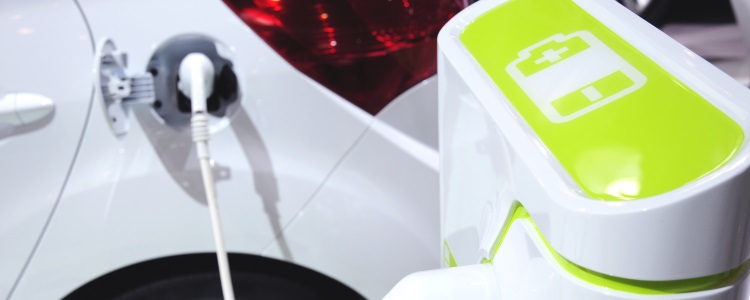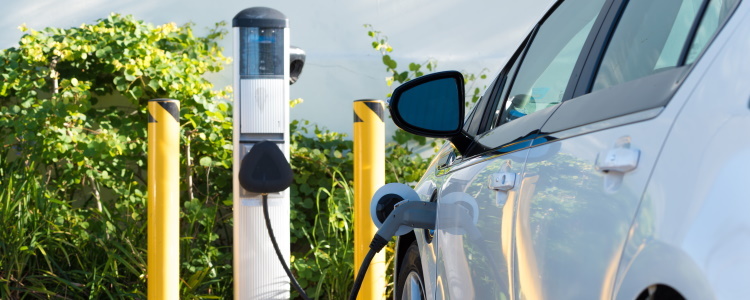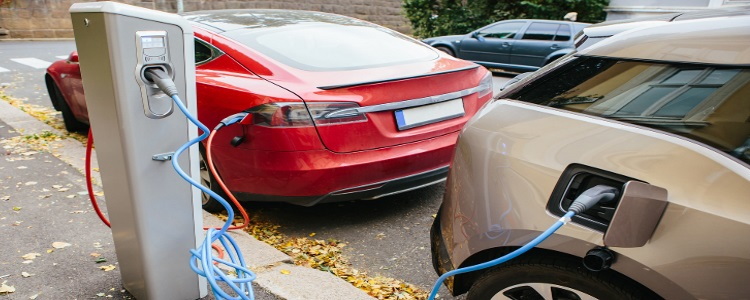Summer is over, and it's time to start getting prepared for colder weather in many parts of the country. This is even more true if you're planning on financing a used electric vehicle (EV).
Does the Cold Affect the Mileage Range of EVs?
Just like any gasoline-powered car, EVs can be affected by extreme cold weather conditions. Fleet Carma, an EV fleet management company, took a Nissan Leaf and drove it around Canada and the US under varying cold-weather conditions. What they found was that the Leaf’s average mileage range was at its highest in temperatures ranging from 60 to 70 degrees Fahrenheit, and its lowest at temperatures below freezing (32 degrees Fahrenheit and below).
At temperatures below 32 degrees Fahrenheit, EVs such as the Leaf have a lower average mileage range, but that doesn’t mean they’re unable to handle harsh weather conditions. Across the Atlantic Ocean, Norway has proven that, despite extreme cold weather, EVs are more than capable of handling these conditions. EVs accounted for more than 20 percent of all new vehicles sold in the first nine months of 2015 in Norway, and since then, new car sales of EVs have continued to increase – with the Leaf the number one EV sold during the first quarter of 2018.
Best Electric Cars for Cold Climates
Although Tesla models are all the rage right now, the good news is that you don’t need to spend nearly as much money to have a good EV that can handle winter weather. In fact, you don’t even need to buy new. Check out these three used EVs to consider:
-
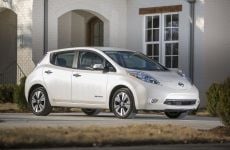 2015 Nissan Leaf
2015 Nissan Leaf Fair Market Price: $9,701 (S), $10,601 (SV), $12,151 (SL)
Range: 84 miles
Fuel Economy: 126 city/101 highway/114 combined miles per gallon equivalent (MPGe)
-
 2015 Ford Focus Electric
2015 Ford Focus Electric Fair Market Price: $13,943
Range: 76 miles
Fuel Economy: 110/99/105 MPGe (city/highway/combined)
-
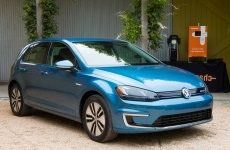 2015 Volkswagen e-Golf
2015 Volkswagen e-Golf Fair Market Price: $15,268 (Limited Edition), $16,293 (SEL Premium)
Range: 83 miles
Fuel Economy: 126/105/116 MPGe (city/highway/combined)
Costs of Owning an EV
It’s true that EVs save you money by eliminating the cost of gasoline, but there are other expenses to consider if you plan to go more eco-friendly and purchase one.
Where EVs can save you money:
- Gas prices – No fuel means not having to worry about gas prices, which are currently rising in the US.
- Maintenance procedures – You won’t need to take your EV in to have an oil change, air filters replaced, or certain tune-ups performed, which saves you money on these regular maintenance services needed with gasoline-powered vehicles.
Where EVs can cost you money:
- Installing a charging station – In order to most efficiently charge your EV, you need a home charging station. One of these can cost anywhere from $225 to $1,600 or more, depending on its charging level (charging stations are Level 1, 2, or 3). Plus, if you don’t have an outlet that’s easily accessible, you need to have an electrician install one.
- Replacing the battery – Although EV batteries are designed to last past the 100,000-mile mark, if a battery does die on you it could cost a lot to replace. For a Nissan Leaf, replacing the battery sets you back around $5,500, plus labor.
Start Your Car Buying Journey Today
Regardless of if you’re looking to go green or sticking with gas, when you’re ready to buy your next car, we want to help you get started here at Auto Credit Express. We work with local dealerships that are teamed up with lenders that know how to handle many unique credit situations. Start the process today by submitting our free and secure auto loan request form.


